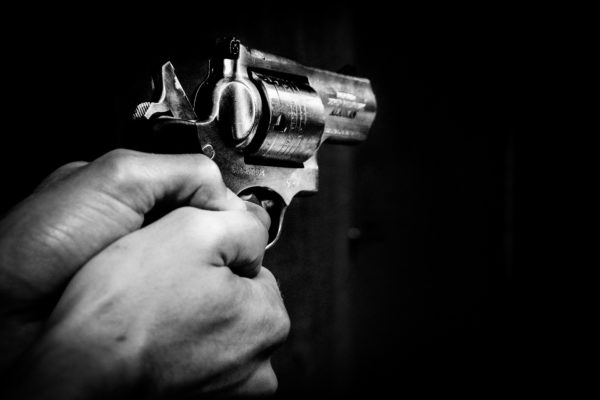FAQs
How do I get my firearms charges dropped?
Firearms offences carry serious punishments in Canada and are set out in the Criminal Code and Firearms Act.
Even unauthorised possession of a firearm can lead to jail time and a permanent criminal record that can significantly impact your employment and ability to travel.
Being charged with a firearms offence as part of another crime is even more serious and leads to much more significant sentences.

With any allegations involving firearms, the first thing most people think is “How do I get my firearms charges dropped?”
Your best chance is with the help of an experienced firearms lawyer, who can guide you through this stressful time and prepare a strong defence.
Even if the evidence seems overwhelming against you, an experienced lawyer will explore all the avenues available to help clear your name or, at least, mitigate the punishments you face.
Sometimes, even when the likelihood of conviction is high, there are other ways to potentially get the charges against you dropped.
Work with a firearms lawyer to build your defence
Firearms cases are often highly technical.
From unauthorised possession or transportation of a firearm to charges of trafficking or illegal use, law enforcement officers need to have followed the correct process in order to secure a conviction against you.
An experienced lawyer with in-depth knowledge of Canadian firearms laws will:
- Analyze the evidence for weaknesses or inconsistencies
- Push for case dismissal, if possible
- Explore other avenues to get the charges dropped
- Defend you vigorously at trial
- Seek reduced penalties if an acquittal is not possible
In firearms cases (like all criminal cases), your Charter rights must be protected.
The prosecution needs to show that the evidence against you was collected according to the law and prove beyond a reasonable doubt that you are guilty of the charge(s).
There is considerable room for error from the authorities and the prosecution in such cases. Many times, Charter rights are not adequately protected or law enforcement officers make mistakes when collecting evidence or processing a case (for instance, the methods used to search you or your premises).
There may also be discrepancies, contradictions or gaps in the Crown’s case.
Where mistakes are made in simple possession charges, case dismissal is common if an experienced firearms lawyer is involved.
Other firearms charges are much harder to defend, especially those with aggravating factors present.
However, a skilled lawyer will look for other ways to avoid a conviction through case resolution negotiations, such as pushing for AMP or conditional discharge.
What is the Alternative Measures Program?
The Alternative Measures Program (AMP) may be the best course of action in some cases.
If you have been charged with a registration or licensing offence for an unrestricted and non-prohibited firearm, entry to the AMP may provide an acceptable way for all parties to resolve your case.
Basically, being approved for AMP allows you to complete a short program, after which the charges will be dropped.
This means that you avoid a criminal record. That alone is almost priceless in terms of your future.
What is a discharge?
Another potential way to get the charges dropped is through a ‘conditional discharge’.
With this strategy, you plead guilty to the firearms offence and we then apply to the court for a ‘discharge’.
This means that, if you comply with certain conditions over a specific time period, you will be discharged from the offence and avoid a lifelong criminal record.
Instead, your record will show the conditional discharge for the period of just three years, during which time you must not re-offend.
Sometimes, an ‘absolute discharge’ can be granted by the court, which immediately discharges you from the offence (without any conditions placed on you) and only stays on your record for one year.
Discharges are often the best strategy for first-time offenders.
What happens if we can’t get the charges dropped?
Sometimes, it is in everybody’s best interests to negotiate and get the main charges dropped.
This nearly always depends on the circumstances of your case and the strength of the evidence against you.
However, at other times, there is no way to get the charges dropped or avoid a conviction.
The consequences of a firearms conviction can be life-altering. You can expect the following even for a first non-severe offence:
- Jail time of six months to five years
- A permanent criminal record
- A $5,000 fine
The criminal record could have long-term effects on the following aspects of your future:
- Your career
- Your finances
- Your freedom of movement
- Your immigration status (if you’re not Canadian)
The seriousness of the penalties imposed depends on previous convictions (if any), the nature of the offence committed, and whether it is treated as a summary or indictable offence (or a “hybrid”, which can be treated as either, depending on the perceived risk of your actions to public safety).
If we cannot get the firearms charges dropped, we will go to trial in an attempt to secure an acquittal.
If that is not possible, and a fine or period of probation is out of the question, we will look to secure a sentence that will allow you to avoid any time spent in prison and remain in the community with certain conditions imposed.
This is usually via a ’conditional’ sentence or ‘suspended’ sentence.
Where jail time is absolutely necessary in the eyes of the court, we will work to reduce that sentence.
About Cory Wilson

Cory has represented individuals from all walks of life including lawyers, police officers, athletes, corporate executives, teachers, and everything in between. Cory believes in access to justice for every person charged with a criminal offence regardless of their economic background.